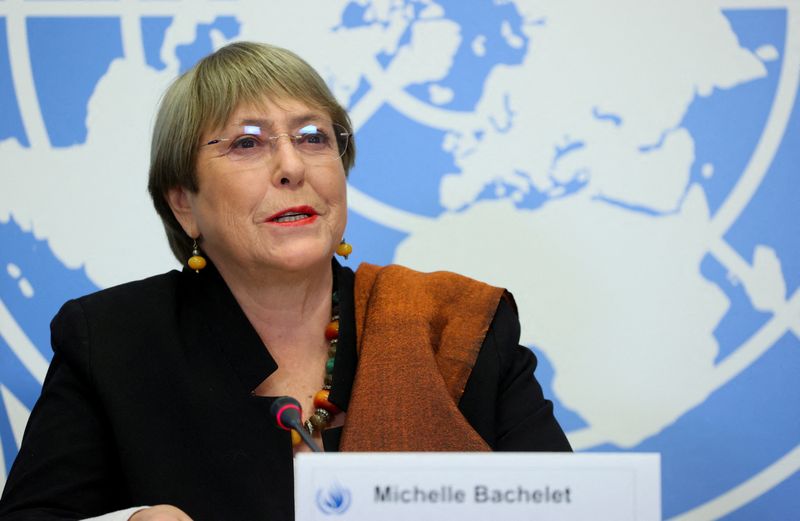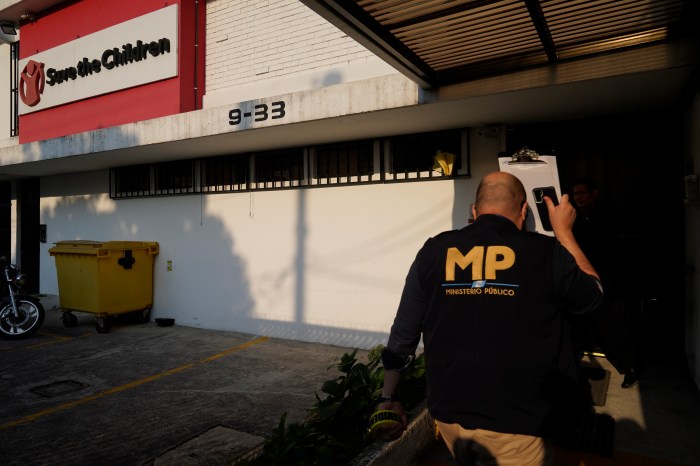GENEVA (Reuters) – The U.N. High Commissioner for Human Rights, Michelle Bachelet, said on Monday the discovery of dead civilians in the Ukrainian town of Bucha raised questions about possible war crimes.
On Sunday, Reuters saw corpses in Bucha including one man who lay sprawled by the roadside with his hands tied behind his back and a bullet wound to his head. The city’s deputy mayor said that 50 dead residents had been victims of extra-judicial killings carried out by Russian troops.
The Kremlin categorically denied any accusations related to the murder of civilians in Bucha. Reuters was unable to independently verify who was responsible for the killings.
“Reports emerging from this (Bucha) and other areas raise serious and disturbing questions about possible war crimes, grave breaches of international humanitarian law and serious violations of international human rights law,” Bachelet said in a statement, saying she was horrified by the reports.
She stressed the need to exhume all the bodies and identify them so that families may be informed and the exact causes of death established.
“All measures should be taken to preserve evidence,” Bachelet said. “It is vital that all efforts are made to ensure there are independent and effective investigations into what happened in Bucha to ensure truth, justice and accountability, as well as reparations and remedy for victims and their families.”
The U.N. human rights office has some 50 staff in Ukraine who have been monitoring the civilian death toll since Russia invaded the country on Feb. 24. So far it has confirmed the deaths of 1,430 civilians, adding that the real toll is likely considerably higher because of verification difficulties.
(Reporting by Emma Farge; Editing by Mark Heinrich)


















